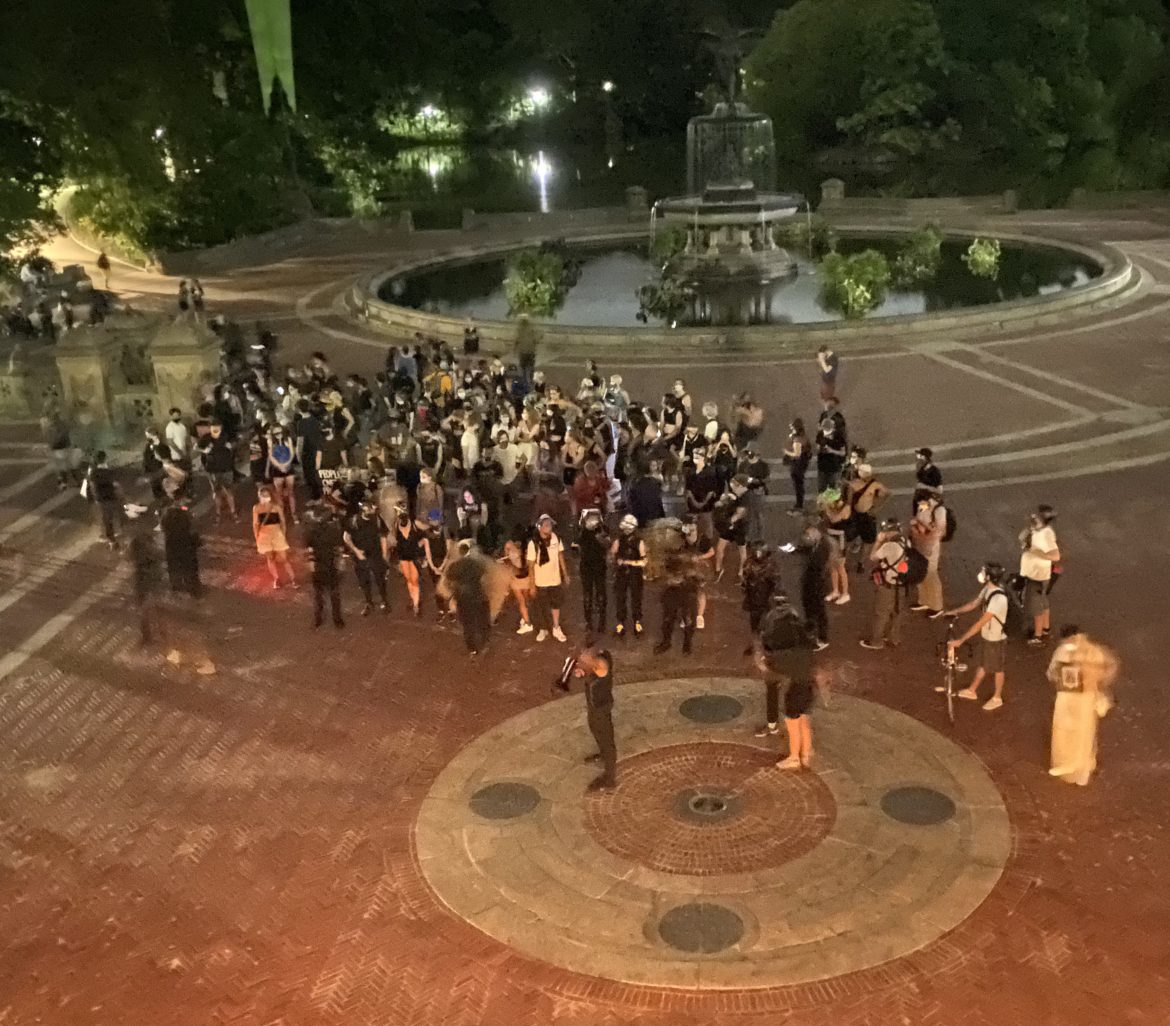NEW YORK — After a viral video surfaced showing plainclothes NYPD detectives forcing an anti-police protester into an unmarked police van, questions remain about why they were allowed to make the arrest.
The protester, Nikki Stone, 18, was arrested and given a summons early Wednesday morning after New York Police Department officials alleged she damaged five police cameras at City Hall during demonstrations over the last several weeks.
An NYPD spokesperson also said Stone and others allegedly threw rocks and bottles at police during the arrest, though this was not immediately evident from video at the scene.
The warrant squad who arrested Stone is supposed to only respond when an individual has active bench warrants against them for incidents like missing a court date. In this case it remains unclear whether Stone had active warrants.
The squad has reportedly targeted protesters in the past, and those most intimately familiar with their tactics said the Stone arrest marks a frightening turning point for detectives.
State Sen. Zellnor Myrie, a Democrat, said it’s no secret the warrant squad often uses plainclothes detectives and unmarked cars to make arrests.
“The level of aggression they used is absolutely unacceptable,” he said. “This is part of a broader pattern of aggression of utilizing unmarked cars to round people up, particularly in Black and brown communities.”
 Myrie also expressed concern that the warrant squad was being used to round up protesters in particular, suggesting that the move is similar to when NYPD utilized the squad in 2012 to arrest Occupy Wall Street protesters around the city.
Myrie also expressed concern that the warrant squad was being used to round up protesters in particular, suggesting that the move is similar to when NYPD utilized the squad in 2012 to arrest Occupy Wall Street protesters around the city.
Gideon Oliver, a Brooklyn-based attorney who previously represented Occupy Wall Street protesters in court, said the use of the warrant squad to arrest Stone may be even more concerning than the 2012 actions.
“When they arrested protesters during Occupy, they actually had warrants, and the warrant squad was actually enforcing warrants. That was not the case this time,” he said. “I’ve never seen [the warrant squad] actually doing this in such a public way, particularly during such a large-scale event. It’s very concerning.”
Such squad arrests not unusual, officers say
Organizers on the frontlines of the anti-police demonstrations in New York are now planning marches specifically over the Stone arrest, signalling that the arrest may have reignited tensions between police and protesters.
Officers within the NYPD maintain that the practice of using the warrant squad to arrest individuals — even when they do not have a warrant — is standard within the department.
One veteran NYPD officer working in Brooklyn who wasn’t authorized to speak on the record, said uniformed patrol officers are rarely expected to hunt for suspects. People like Stone, who had apparently evaded police for weeks, regularly have their information turned over to the warrant squad after uniformed officers fail to contact a suspect, the officer said.
Though protesters had complained about their own dwindling numbers and a lack of central organization in recent days, the Stone arrest has given organizers a new sense of purpose, allowing them to respond to seemingly aggressive NYPD tactics.
Reactions from public officials over the video of Stone being bundled into the unmarked van have varied widely across the city. Members of the City Council such as Democrat Carlina Rivera have suggested they are considering introducing legislation to limit the scope of the warrant squad.
She offered few details in a statement about what legislation might look like, only that she and her staff are “looking to draft legislation that relates to this type of matter.”
Mayor Bill de Blasio seemed to struggle with whether he supported the warrant squad’s arrest or not, critiquing the optics, but not the substance of the arrest in his daily press conference Wednesday.
“Given this atmosphere that we're dealing with in our country and the real concerns people have, it just didn't make sense,” he said. “The decision to arrest someone for destroying public property was a good decision. The time and place was not.”
Days earlier de Blasio had chided the federal government for allegedly using the same tactics in cities like Portland, Oregon.
In a letter sent last week, he had told Attorney General William Barr, and acting Department of Homeland Security Secretary Chad Wolf that he did not want federal officials to come into New York to assist with protecting federal property.
“Sending in an army of rogue federal agents who are unfamiliar with our streets and community leaders to engage in tactics like those in Portland, will not help fight crime,” the letter said. “It will undermine public trust in law enforcement.”
